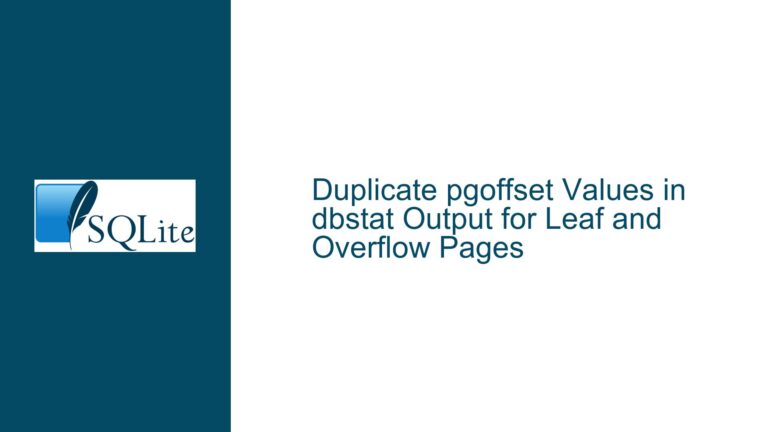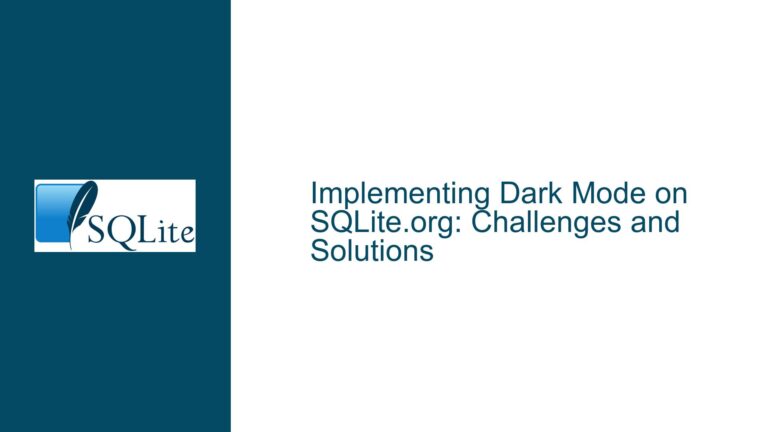Resolving Duplicate Column Renaming Conflicts During CSV Import in SQLite
Column Name Disambiguation Failures in SQLite .import Command Conflict Between Automatic Renaming and Predefined Column Suffixes The core issue revolves around SQLite’s .import command failing to handle column name disambiguation when importing CSV files containing duplicate or predefined suffixed column names. This occurs because the algorithm used to rename duplicate columns during CSV import clashes…









